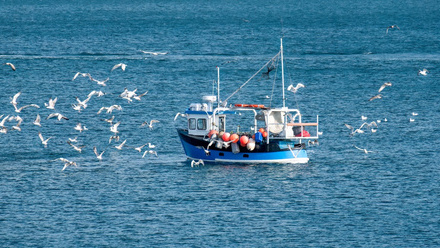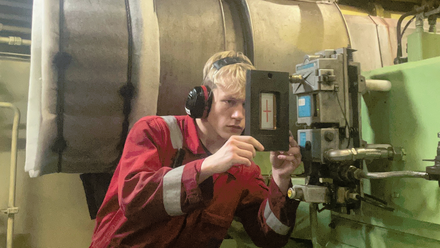Support not stigma for seafarers with mental health issues
We speak with Lizi Woodland, Chair of IMarEST’s Seafarer Mental Health and Wellbeing Special Interest Group (SIG) and Business Development Manager of the Guild of Benevolence, about some of the supportive actions being taken.

This summer, Norwegian insurer Gard shared some troubling news. Around 11% of deaths on commercial ships insured with Gard were due to suicide. That figure aligns with previous estimates by Steven Jones, founder of the Seafarers Happiness Index.
The reasons for poor mental health among seafarers are many. Months of living and working in the same place, cramped and noisy conditions, long working hours, loneliness, fatigue, bullying, harassment, and worse, are just a few. “If you’re having a bad time and you’re at sea, you’re having a really bad time,” says Woodland.
Young people are becoming increasingly aware, accepting, and open about mental health issues. “They know everything about themselves – their personality type, and they know their rights,” Woodland states.
However, Woodland says that this sea change is more prominent with land-based young people rather than those heading out to sea, where mental health is arguably more stigmatised. “I did a lot of research with cadets while they were on ships via video calls. I asked: ‘How are you, are you OK mentally?’ and they would say, ‘I have to be’,” laments Woodland.
This ‘have to be’ perspective is arguably both cultural and systemic. As an example, Woodland says: “There’s a lot of older generation mariners who’ve had suicide as part of their daily life. They’ve had a colleague who committed suicide because of isolation and difficulty in expressing any unhappiness.” Then, there is the fear of losing employment. “If you’re in charge and you say you’ve had a suicidal thought in the last two years, you lose your licence, so you can no longer work. So why would you talk about it and risk that?”
Building a support system
There is no silver bullet that can solve the seafarer's mental health crisis, but several tools are being created that could help. The Seafarer Mental Health and Wellbeing SIG is working on a mental health pack to supply to ship managers. “It’s generally about raising awareness and giving the managers tools,” Woodland says. The pack will contain documents that can guide people with assessing their mental health as well as the mental health of others and training guidance around key issues such as sexual harassment.
Meanwhile, the Guild of Benevolence charity is developing The Cadet App aimed at cadets who are at sea for the first time.
Funded by the Ray McGrath Memorial Trust, which focuses on education, relieving poverty, and marine matters, The Cadet App will create a buddy system between first-time sea-going cadets and land-based ‘buddies’ with seafaring experience, helping to ensure that all cadets have someone to whom they can turn to.
To raise more awareness and explore solutions, the Guild of Benevolence is hosting a Mental Health at Sea event in London this November. “It is free admission, and tickets are available on the IMarEST website,” says Woodland.
“The mental health landscape is changing, but we can do more. IMarEST and the Guild of Benevolence can be a great help in furthering that.”
If you or a marine professional you know is struggling with mental health-related issues, reach out to SAFER WAVES.
Discover more about the Guild of Benevolence.
Newsletter image: Lizi Woodland; credit: Lizi Woodland.
Main image: digital representative of loneliness at sea; credit: Shutterstock.
Tell us what you think about this article by joining the discussion on IMarEST Connect.






